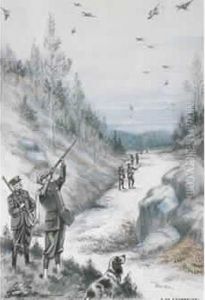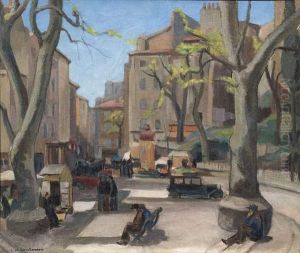Louis De Beaufort Paintings
Louis de Beaufort was a French historian and critic who lived during the 18th century. Although not widely known as an artist in the traditional sense, he made significant contributions to the historical field through his critical examination of Roman history. Born in 1703, de Beaufort's work largely involved challenging the credibility of early Roman history as it was understood in his time.
De Beaufort's most notable work is 'La République Romaine', or 'The Roman Republic', in which he argued that much of the early history of Rome as recorded by historians like Livy was largely mythological and not based on solid historical evidence. This was a controversial stance at the time, as it called into question the historical accuracy of cherished narratives about the Roman Republic's foundation and early years.
De Beaufort's skepticism regarding early Roman history contributed to the development of a more critical approach to historical research, emphasizing the need for reliable sources and evidentiary support. His work foreshadowed later developments in the field of historiography, where rigorous source criticism became a fundamental practice.
Louis de Beaufort's influence extended beyond his life, which ended in 1795. While he may not have been an artist in the sense of a painter or sculptor, his critical approach to the study of history and insistence on empirical evidence can be seen as an intellectual artistry that helped shape modern historical methods.

